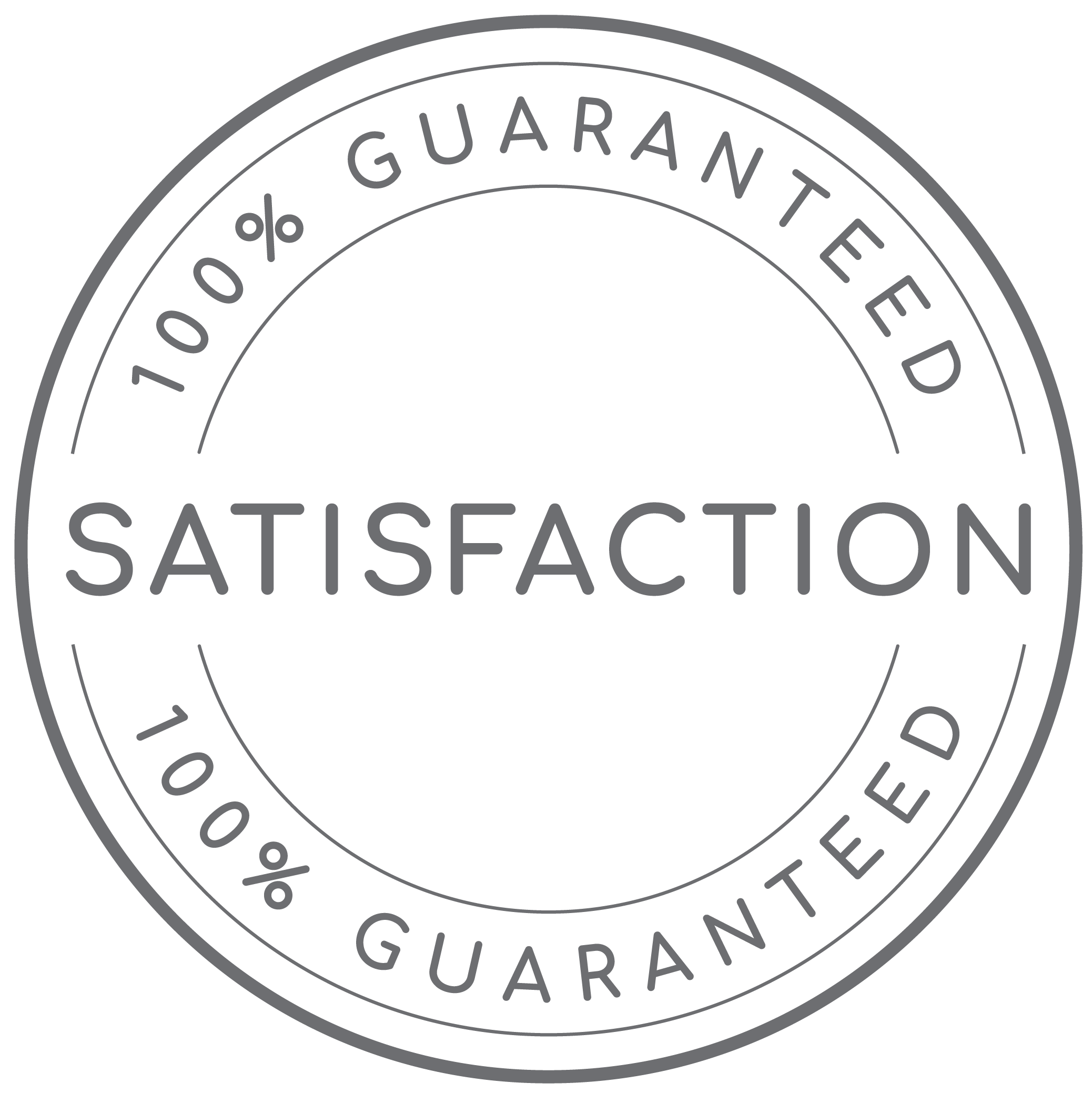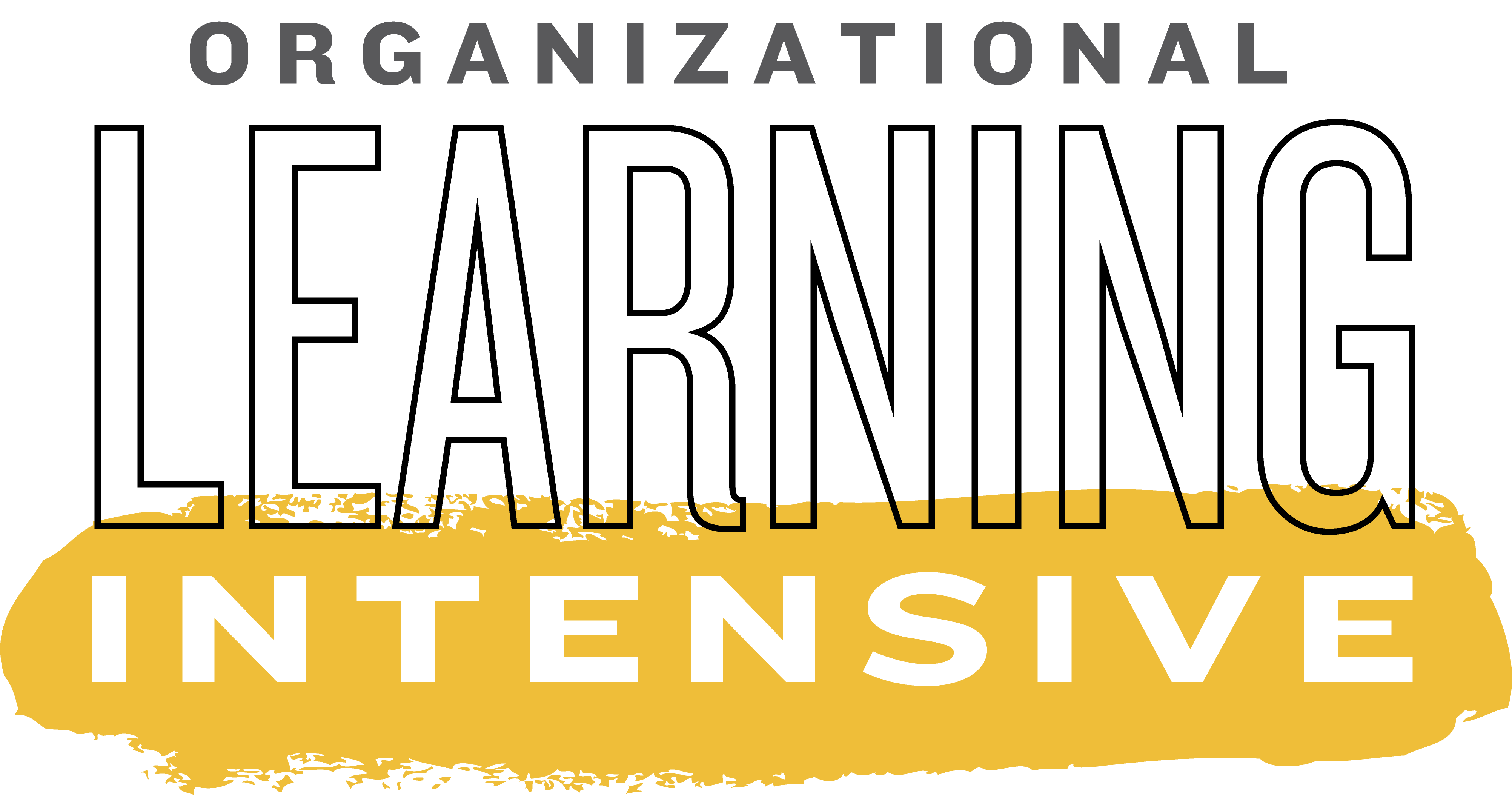
Adopt An Evidence-Driven School Improvement
System In Your Organization
Your Mission In The Intensive
Are you ready to create sustainable improvement in your organization? Your mission—should you choose to accept it—is to adopt an evidence-driven school improvement system, so you can avoid the pendulum swings that prevent change from gaining momentum, and transform your school into a true learning organization.
When Change Doesn't Result in
Improvement...Or Learning
"Fail Fast, Fail Often" is the mantra in Silicon Valley.
"Well, at least we learned something," people say when an initiative fails.
But too often, it's not true. We fail to learn from our improvement efforts that don't work out—especially those that stall, get crowded out, and fade slowly into the background.
In the education profession, we can't afford to treat failure casually. Student learning is on the line.
When we commit to learning from change—not just failure—we learn how our systems and processes actually work.
In the Organizational Learning Intensive, you'll learn how to design improvements that have a vastly higher probability of success, and that result in more disciplined, purposeful learning.
What is Organizational Learning?
An Evidence-Driven Roadmap for Change
Improvement in K-12 education usually begins with strategic planning and involves plenty of activity and data collection...but very little change in practice.
The evidence-driven school improvement system you'll discover in the Organizational Learning Intensive has six stages:
![shutterstock_1162510855 [Converted]-01a](https://www.principalcenter.com/wp-content/uploads/shutterstock_1162510855-Converted-01a.png)
[The program] is going to make you a better person, or a better administrator. It's going to make you think of things that you wouldn't, that you hadn't thought of, or if you're doing them, how to tweak it to make it better.
Pamela S. // Elementary School Principal
The leader's greatest contribution is to maximize organizational learning."
Justin Baeder, PhD. // Director, The Principal Center
Introduction
Strategy, Practice & Results
This module will help you get clear on the core elements of implementing an evidence-driven system for school improvement.
We'll explore:
Module 1:
Find Your Bearings
The first step in any improvement effort is to discover what kind of change you're implementing, using the 4-tier Achievement Science Goal System, and determine where it fits in your organization's overall improvement strategy.
In Module 1, we'll focus on:
If you know what you want to happen, but you're struggling to get other people to grasp and run with your vision, this module will get you clear about the nature of the changing you're pursuing. You'll develop a specific timeline, communication, and accountability plan to keep it on track.
Bonus:
Instructional Framework Development Program
If the improvement effort you have in mind relates to instructional strategies, the Instructional Framework Development Program will help you articulate a 4-level rubric for specific areas of teacher practice, so everyone is on the same page.
This bonus training can be shared with your entire team, so you can develop shared, written expectations for instructional practice.
You'll discover:
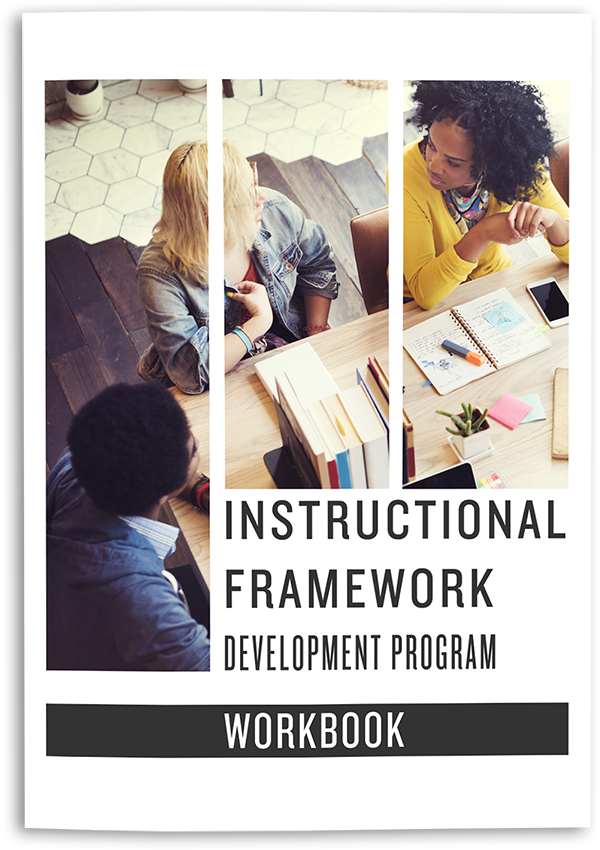
Module 2:
Map The Improvement
Once you've clarified the improvement effort you're focusing on, it's time to get specific about how it'll work.
Too often, we fall into magical thinking—as if simply choosing a "best practice" will give us the results we're hoping for. In the real world, implementing change involves complexities that we must anticipate and manage.
In this module, you'll experience Improvement Mapping, a skill you can use over and over again to design improvements that will both succeed and have a positive impact on the rest of the organization.
It's not about writing a long, detailed document with timelines and action steps. It's about clarifying how the improvement effort will actually work—at its core, and in your larger organizational context.
Module 3:
Help People Change At The Right Time
In too many initiatives, change takes place on paper, but not in practice. When you adopt an evidence-based approach to changing practice, you'll know—with certainty—where practice is changing, and where it's not.
People naturally vary in their readiness for change—some are early adopters, while others want to see their colleagues succeeding first. Rather than fight this natural variation, savvy change leaders capitalize on it to maximize organizational learning and minimize resistance.
In this module, you'll learn how to help the right people go first with any change. We'll explore:
Module 4:
Get Close To The Work
Once you've clarified what you're changing, and who will go first, it's time to get an insider's view of the work.
Effective change leaders don't micromanage...but they aren't hands-off, either. Instead, they practice what Toyota calls Genchi Genbutsu—a "go and see" approach that respects the professionalism of the people implementing the change, without blindly assuming that everything is fine.
Seeing the change in progress—firsthand—is at the heart of evidence-driven school improvement. We'll explore:
Bonus:
District Learning Rounds
If you're in a district leadership role, this bonus training will help you develop a plan for getting into classrooms to see and support the work you're leading.
Central office leaders are key to any district-wide improvement effort, yet are often cut off from the most valuable source of information about practice: the classroom. In this training, you'll discover how District Learning Rounds can get you close to the work—even if your flexibility is limited.
We'll explore:
Module 5:
Protect & Accelerate The Work
Once a change effort is underway, the leader's role shifts from crafting the vision to protecting the vision, so it has time to grow into a sustainable improvement.
If you're not fiercely protective of your improvement work, other people's priorities will starve it of time—especially collaborative meeting time—and other organizational resources, like budget and attention. Savvy change leaders know they can't just say no to mandates—so they adopt a sophisticated "lean change" approach to protect key improvement priorities.
You'll discover:
Module 6:
Learn Through Evidence-Driven Inquiry
In this final module, you'll learn how to embed organizational learning throughout your improvement effort using short cycles of inquiry.
Because we're pressed for time, we often move from one initiative to the next without pausing to capture the insights we're generating from our improvement work. As a result, we have plenty of activity, but very little organizational learning. Over time, this can lead to initiative fatigue, cynicism, and resistance.
Savvy change leaders know that people need to see results in order to persist in the face of adversity. The HEAT Inquiry Cycle will help you test your assumptions, find what's working, capture key lessons from your improvement work, and help your organization get better at getting better.
You'll discover:
Who Should Register?
The Organizational Learning Intensive is designed for instructional leaders who oversee schools, departments, and programs, including:
Who Is The Intensive NOT For?
The Organizational Learning Intensive is open to all, but is NOT designed to specifically address the needs of:
Deal Effectively With Staff Resistance
When teachers won't get on board with a school initiative, leaders must act.
Too often, though, leaders view staff resistance as conflict, rather than an opportunity for organizational learning.
Sometimes the best way to respond to resistance is with curiosity:
In The Intensive, you'll discover a model for implementing change with teachers' natural variation in readiness in mind, so you can maximize teacher buy-in and minimize resistance.
Get Everyone On The Same Page
Alignment and coherence are crucial aspects of any school improvement plan. How can you help staff see how improvement efforts fit together?
After making strategic choices, it's essential to articulate a clear theory of action (ToA).
A theory of action describes how a change effort is designed to work, and precisely how it's designed to lead to improvement.
When you have a clear ToA, it's easier to monitor whether your efforts are working, and easier to avoid pursuing conflicting goals and initiatives.
[The program] is going to make you a better person, or a better administrator. It's going to make you think of things that you wouldn't, that you hadn't thought of, or if you're doing them, how to tweak it to make it better.
Pamela S. // Elementary School Principal
The resources provided by Justin and The Principal Center have supported my growth as an Administrator and Principal. The ideas, concepts, and practices are useful and valuable.
Greg L. // Principal
Are You The Bottleneck?
A school's instructional leadership capacity determines the pace of change. Yet in too many schools, leaders with formal titles—especially the principal—function as bottlenecks, limiting the rate of school improvement.
We see instructional leadership capacity as an organizational property—the school's ability to make and implement operational and improvement decisions.
In The Intensive, you'll learn how to ensure that your team is focused on the right work at the right time, so no one gets overwhelmed—including you.
Program Format
The Organizational Learning Intensive consists of six core modules, plus two bonus modules.
Each week, we'll release a new video training module with powerful strategies and concepts to strengthen your leadership.
Each module will be accompanied by assignments you can complete and share in our private discussion forum, where you can get ideas and peer feedback.

Course Format
Each module is filmed in high-definition video in our studio, and accompanied by a PDF Workbook
You'll also receive transcripts of each video training module for quick review
Everything is organized into our password-protected learning management system, so you can track your individual progress
Free Copy of Now We're Talking!
You'll receive a signed copy of Now We're Talking! 21 Days to High-Performance Instructional Leadership, by Principal Center Director, Justin Baeder, PhD.
Plus, you'll receive the audiobook version in MP3 format for on-the-go listening.
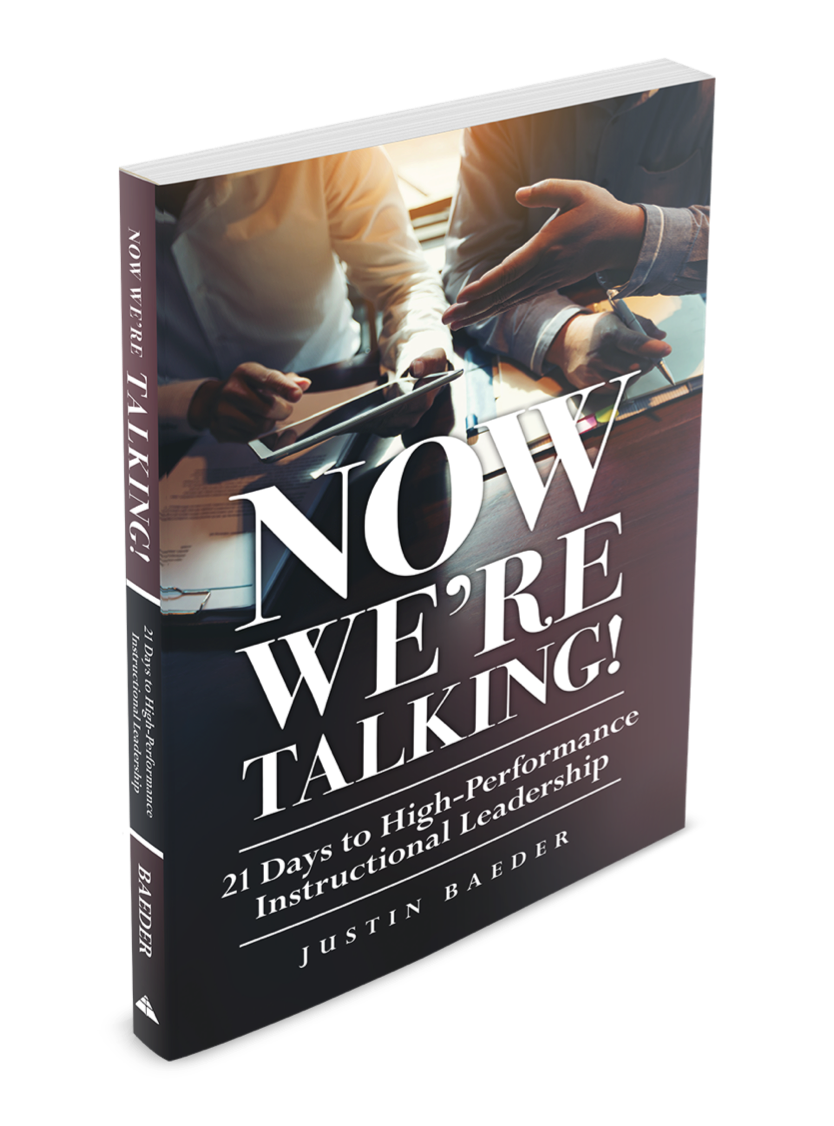
[The program] is going to make you a better person, or a better administrator. It's going to make you think of things that you wouldn't, that you hadn't thought of, or if you're doing them, how to tweak it to make it better.
Pamela S. // Elementary School Principal
I'm on track for 500 classroom walkthroughs this school year—more than I've done in my previous 12 years as Principal combined! The combination of accountability and on the spot coaching and mentoring, along with specific content (how to make walkthroughs a habit, how to clean off my desk, deal with the "stuff" that overwhelms) has been the key for me!
Heather B. // Principal
What Will I Create In The Intensive?
When you complete the Organizational Learning Intensive, you'll have:

Concierge Setup of Repertoire App

Free Copy of Now We're Talking!
You'll receive a signed copy of Now We're Talking! 21 Days to High-Performance Instructional Leadership, by Principal Center Director Justin Baeder.
Plus, you'll receive the audiobook version in MP3 format for on-the-go listening.
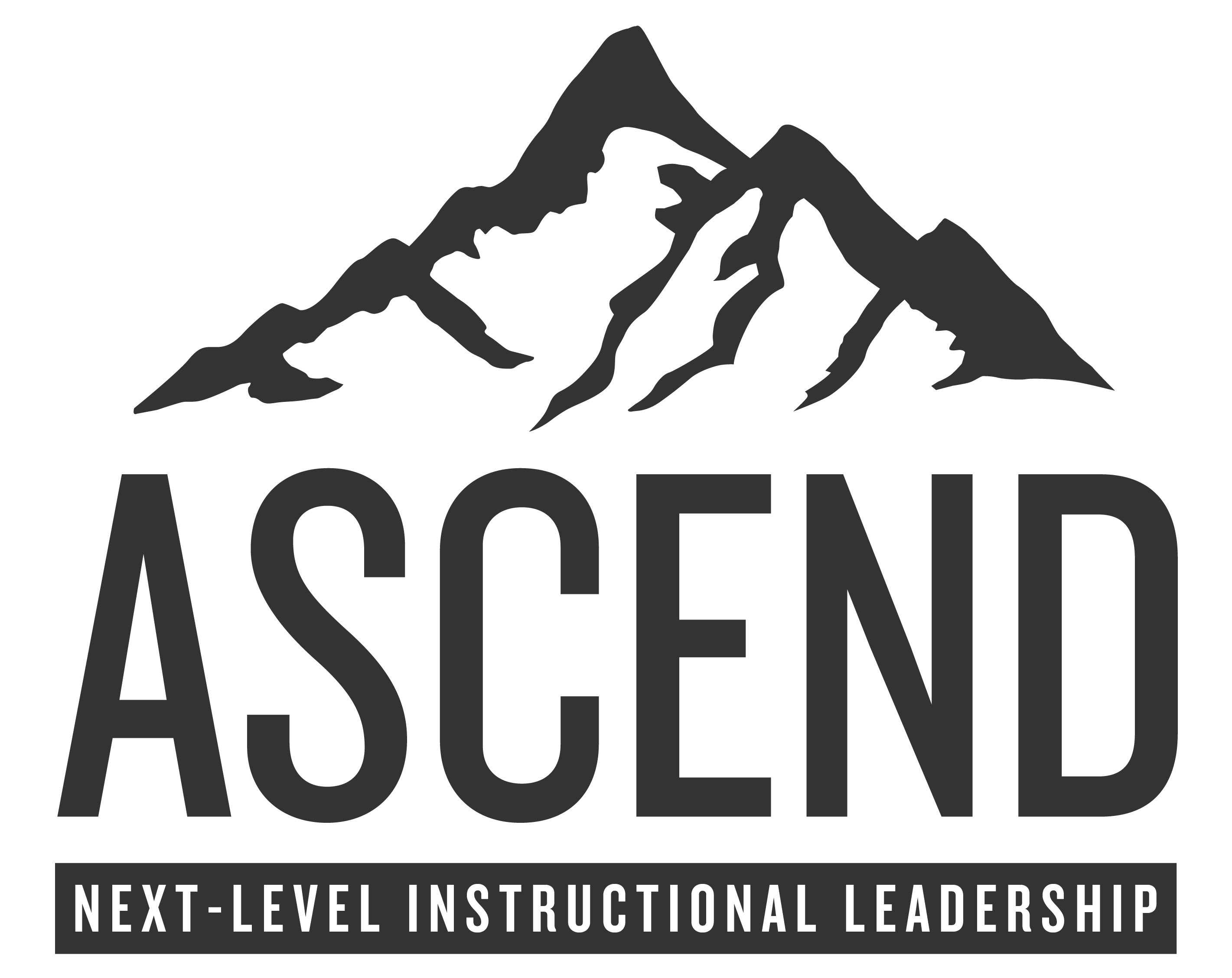
100% Tuition Credit for Ascend
If you've been considering our Ascend program, we wanted to make it an easy choice.
Register for the High-Performance Instructional Leadership Certification program, and you'll be able to add Ascend at any time in the future, with 100% of your HPILC course registration fee applied to your Ascend tuition.
Money-Back Guarantee
The Organizational Learning Intensive will give you the tools you need to maximize the success of your change efforts and the organizational learning that results from this work.
We're confident that you'll be amazed at the transformation that takes place in your ability to move your school forward. We are fully committed to making our program the most powerful professional development for instructional leaders anywhere.
If you're not 100% satisfied with the our program for any reason, contact us within 30 days for a full refund.
Organizational Learning Intensive
$1495
Frequently Asked Questions
Is this program 100% online?
Do I need to be available for all 6 weeks of the program?
What's in the modules?
Do you accept purchase orders?
What if I'm changing schools?
Do you have a payment plan?
What if I have questions before registering?
About Your Instructor
Justin Baeder, PhD
The Organizational Learning Intensive is led by Dr. Justin Baeder, creator of the Instructional Leadership Challenge, Director of The Principal Center and author of Now We're Talking! 21 Days to High-Performance Instructional Leadership.
A former Seattle Public Schools principal and teacher, Justin's professional mission is to help schools build capacity for instructional leadership by helping school leaders confidently get into classrooms every day, have feedback conversations that change teacher practice, and identify their best opportunities for school improvement.
